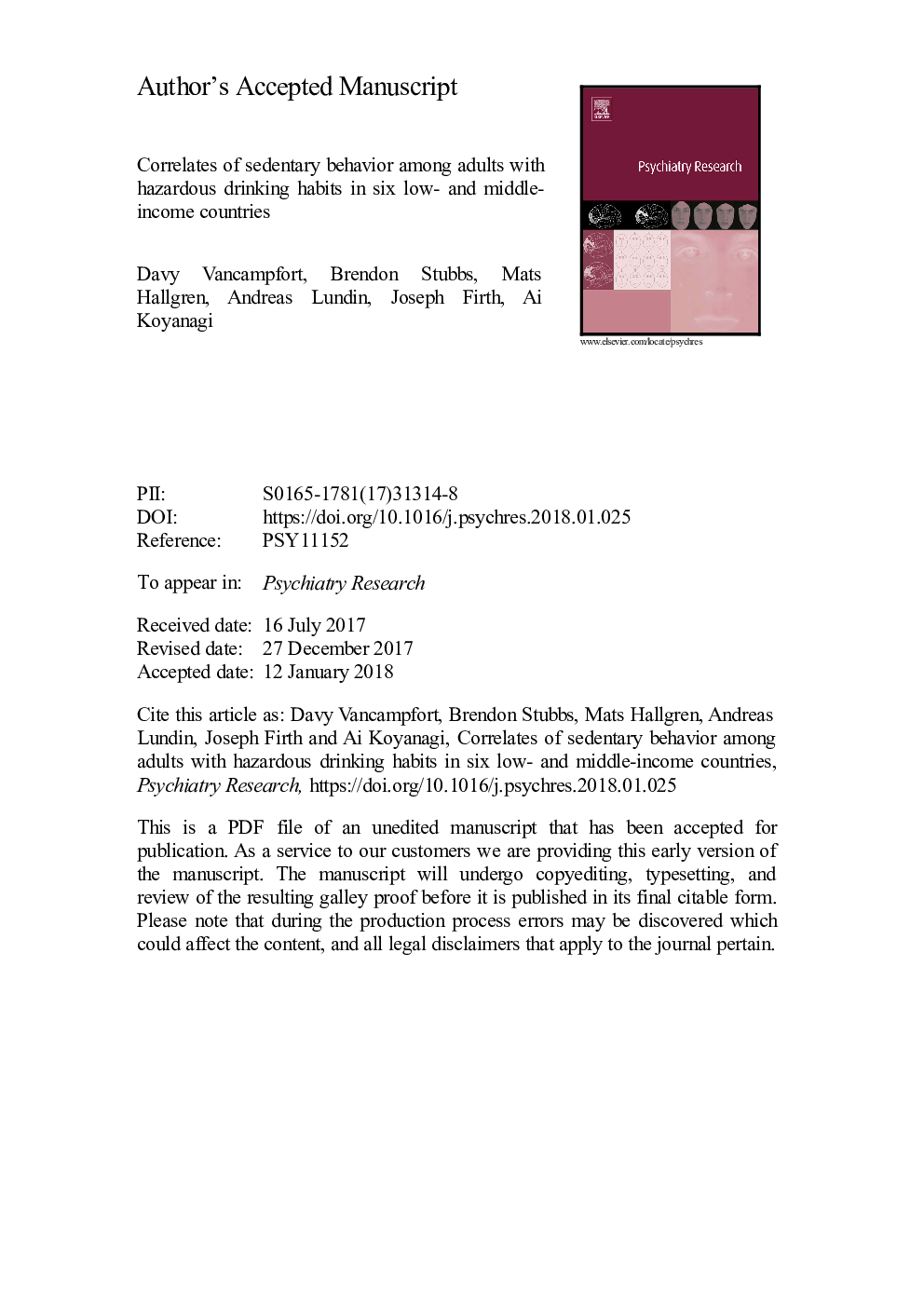| Article ID | Journal | Published Year | Pages | File Type |
|---|---|---|---|---|
| 6811921 | Psychiatry Research | 2018 | 28 Pages |
Abstract
Sedentary behaviour is associated with poor mental health, diabetes and cardiovascular disease, all of which are a concern among hazardous drinkers. Little is known about sedentary behaviour and it's correlates in hazardous drinkers, particularly in low- and middle-income countries. We investigated correlates of sedentary behaviour among community-dwelling adults aged â¥18 years with hazardous drinking patterns in six low- and middle-income countries. Cross-sectional data were analyzed from the World Health Organization's Study on Global Ageing and Adult Health. Hazardous drinking was defined as consuming >7 (females) or >14 (males) standard drinks per week. Associations between time spent sedentary and a range of correlates were examined using multivariable linear and logistic regression. The mean time spent sedentary in 2142 individuals with hazardous drinking patterns (mean age = 45.7 years; 13% female) was 216±135 min/day. Nine percent (95%CI=6.1-13.2%) were sedentary for â¥8 h per day. Living in an urban setting and unemployment were strong sociodemographic correlates of being sedentary for â¥8 h per day. From a health-related perspective, weak grip strength, stroke and disability were associated with increasing time spent sedentary. The current data provides important guidance for future interventions across low- and middle-income countries to assist hazardous drinkers to reduce sedentary behaviour.
Related Topics
Life Sciences
Neuroscience
Biological Psychiatry
Authors
Davy Vancampfort, Brendon Stubbs, Mats Hallgren, Andreas Lundin, Joseph Firth, Ai Koyanagi,
